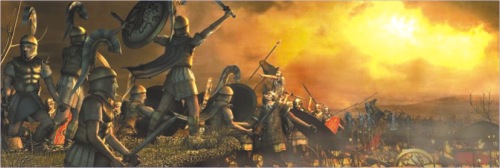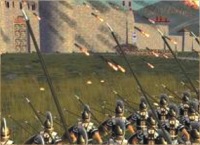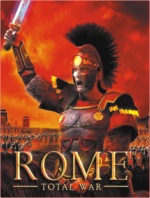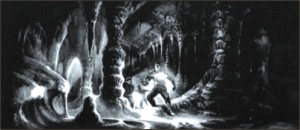MAKSIMUMMUSIC
Compiled
by Sabrina F Ahmad
 The
Essentials
The
Essentials
Name: Maksim Mrvica
Pronouced: Maxim Marrrravista
Birthdate: 3rd May, 1975
Birthplace: Sibenik, Croatia
Nationality: Croatian
Currently based: Oxford Circus
Zodiac Horoscope: Taurus
Chinese Horoscope: Rabbit
Languages: English, Russian,
French, Serbo-Croat
Has lived in: Sibenik,
Zagreb, Paris.
Family
Wife: Ana Plavic
Married for: 10 years
Children: let me quote ~
'too busy'
Other family
Father: an engineer
Mother: a shop assistant
2 Elder Brothers: sailors
(their names are
Slavko and Stipe)
 Maksim
Mrvica (pronounced 'Máravitsa' with a rolled 'r') was proud
of Gestures, his disc of contemporary Croatian piano pieces, but he
was realistic. He expected it to shift a handful of copies and languish
on the shelves like so many other experimental CDs. But he was wrong.
It became one of the fastest-selling classical recordings ever to
be released in Croatia, and ended up winning four Porin (Croatian
Grammies) including one for Best Classical Album. Maksim was even
invited to open the Porin award ceremony - an honour not usually granted
to a classical artist and caused a sensation with his performance
of The Dance of the Baroness. The reason for this success? Maksim
believes passionately in attracting young audiences to classical music,
and communicating with them in new and exciting ways. His performances
involve drama. He's not afraid to create atmosphere with video-screens,
lighting and laser-shows. Articulate in his manner he likes to dress
at the cutting edge of fashion. Most importantly he believes in the
power of the music itself to reach people. It was this belief that
sustained him when he was putting up his own concert posters in small
Croatian towns. It also sustained him when grenades started exploding
during the Croatian war, but he remained in the music school basement
to practise. And it continues to sustain him now that he has the chance
to reach larger audiences than ever before. Maksim's musical training
has been rigorous. He was born in 1975 in Šibenik, a town on the Adriatic
coast. He began piano lessons at 9 (giving his first public performance
at the same age) and performed Haydn's C major piano concerto with
an orchestra just 3 years later. War broke out in 1990, but both Maksim
and his professor Marija Sekso were determined that he should continue
his musical studies. 'There were a thousand grenades a day in my town,'
he says, 'but you can't just stop living - you must go on. And the
only thing I could find to help me was my piano.' Despite the awful
circumstances, Maksim entered and won his first major competition
in Zagreb in 1993. 'I've always felt that that was my greatest victory,
and the most wonderful memory of my whole career,' he says.
Maksim
Mrvica (pronounced 'Máravitsa' with a rolled 'r') was proud
of Gestures, his disc of contemporary Croatian piano pieces, but he
was realistic. He expected it to shift a handful of copies and languish
on the shelves like so many other experimental CDs. But he was wrong.
It became one of the fastest-selling classical recordings ever to
be released in Croatia, and ended up winning four Porin (Croatian
Grammies) including one for Best Classical Album. Maksim was even
invited to open the Porin award ceremony - an honour not usually granted
to a classical artist and caused a sensation with his performance
of The Dance of the Baroness. The reason for this success? Maksim
believes passionately in attracting young audiences to classical music,
and communicating with them in new and exciting ways. His performances
involve drama. He's not afraid to create atmosphere with video-screens,
lighting and laser-shows. Articulate in his manner he likes to dress
at the cutting edge of fashion. Most importantly he believes in the
power of the music itself to reach people. It was this belief that
sustained him when he was putting up his own concert posters in small
Croatian towns. It also sustained him when grenades started exploding
during the Croatian war, but he remained in the music school basement
to practise. And it continues to sustain him now that he has the chance
to reach larger audiences than ever before. Maksim's musical training
has been rigorous. He was born in 1975 in Šibenik, a town on the Adriatic
coast. He began piano lessons at 9 (giving his first public performance
at the same age) and performed Haydn's C major piano concerto with
an orchestra just 3 years later. War broke out in 1990, but both Maksim
and his professor Marija Sekso were determined that he should continue
his musical studies. 'There were a thousand grenades a day in my town,'
he says, 'but you can't just stop living - you must go on. And the
only thing I could find to help me was my piano.' Despite the awful
circumstances, Maksim entered and won his first major competition
in Zagreb in 1993. 'I've always felt that that was my greatest victory,
and the most wonderful memory of my whole career,' he says.
After
five years at the Music Academy in Zagreb studying with Professor
Vladimir Krpan (a pupil of Arturo Benedetto Michelangeli), Maksim
spent a year at the Ferenc Liszt Conservatoire in Budapest. During
this period (1999) he won first prize in the Nicolai Rubinstein International
Piano Competition. In 2000 he moved to Paris to study with Igor Lazko,
and in 2001 he gained first prize in the Pontoise Piano Competition
held in the French capital.
 This
proved to be a turning point in his career, and when he went back
to Croatia he found himself in the middle of intense media interest.
There were frequent television appearances and interviews, and soon
he was recording his Gestures CD. The spectacular launch recital,
in the 2000-seat Lisinski Hall in Zagreb, included a laser show, dry-ice
and a video wall, and half of the audience was under 30. 'I always
wanted to take a different approach,' says Maksim. 'But when it comes
to the music, I don't allow anything to interfere with my performance
or the people who are listening. When I start to play, the lasers
stop. I just want to create an exciting atmosphere.' For the second
half of his concert, Maksim threw aside the lasers and videos, donned
a suit and performed Rachmaninov's Second Piano Concerto. 'I didn't
want to give the critics a chance to bully me!' he says with a laugh.
This
proved to be a turning point in his career, and when he went back
to Croatia he found himself in the middle of intense media interest.
There were frequent television appearances and interviews, and soon
he was recording his Gestures CD. The spectacular launch recital,
in the 2000-seat Lisinski Hall in Zagreb, included a laser show, dry-ice
and a video wall, and half of the audience was under 30. 'I always
wanted to take a different approach,' says Maksim. 'But when it comes
to the music, I don't allow anything to interfere with my performance
or the people who are listening. When I start to play, the lasers
stop. I just want to create an exciting atmosphere.' For the second
half of his concert, Maksim threw aside the lasers and videos, donned
a suit and performed Rachmaninov's Second Piano Concerto. 'I didn't
want to give the critics a chance to bully me!' he says with a laugh.
Soon
after this he was spotted by the musician, author and poet Tonci Huljic
(composer of several tracks for crossover string quartet Bond), and
he put Maksim in touch with impresario Mel Bush. Bush had been looking
for some time for an exciting new pianist, and immediately recognised
Maksim's enormous potential to appeal to classical, crossover and
pop audiences. EMI Classics was just as excited by the young pianist
as Bush, and soon a new album was underway. What are his hopes for
this new 'crossover' project? 'Well, it's not a question of money,'
he chuckles. 'I was earning quite enough from touring and playing
classical concerts. It's a question of experimenting. I always want
to try something different, something new. I just want to reach as
many people of all ages with classical music. That's my dream.'
Game Review
Rome: Total War
The
Royal Emperor of Strategy Game

In
a real way, Rome: Total War is the absolute exemplar of PC gaming.
It's about what only PCs can really do: that is, everything, and everything
at once. In an age of comfortable genre-games, the Total War series
have always stood slightly aside from the main thrust of culture.
Anything brainy and PC-centred, they take from, with even trace elements
of RPGs showing up. However, the two great halls of Rome's bulging
heart are labelled "Strategy" and "Tactics". In
the former, you organise your growing domain on a Civilisation-styled
map. In the latter, you lead your massed forces into action in deliciously
rendered fully polygonal 3D worlds.
It's very big.
The full campaign
game will cause fear-related heart attacks on the more casual gamer.
This places you as one of the three families in Republic-era Rome,
setting forth to carve an empire from the yielding flesh of B.C. Europe.
Even if you choose to auto-resolve most of the battles, set on the
lower difficulty levels, you're looking at some serious game playing
time before you turn on your masters and become Emperor.
Senate aspects
are particularly welcome. In previous Total Wars, the latter part
of the campaign, where you mopped up the remaining resistance, was
where attention began to fade. Here, at the exact point where you're
in a position to bully almost anyone into surrender, your allies turn
on you for fear of your growing popularity, leading to a suitably
dramatic final act as you take on Rome itself. The move from slaughtering
rag-wearing barbarians to commanding the cities with disciplined ranks
of legionnaires is particularly memorable.
 Eventually,
you'll be victor, turn to the game options and realise that you've
only just begun. Forget about altering difficulty levels - with both
tactical and strategy AI capable of being set individually - leading
to a genuinely different experience on replay. You'll also find that
you've unlocked the opposing races as playable factions, allowing
you to play the campaign as the Greeks, Egyptians, Gauls, Carthagians
and so on and so History Channel. While previous Total War games have
differentiated the races both on the strategic and tactical scales,
Rome pushes it even further. The challenges you face as Pharaoh of
the Nile are fundamentally different to those of an ale-smeared chieftain
in Briton. Play the latter and you're separated from the world, resource-poor
with barbarous troops. Play the former, and you possess a surplus
of riches, with expansive realms it takes aeons to march across and
a population that you'll have trouble stopping growing even if you
wanted to.
Eventually,
you'll be victor, turn to the game options and realise that you've
only just begun. Forget about altering difficulty levels - with both
tactical and strategy AI capable of being set individually - leading
to a genuinely different experience on replay. You'll also find that
you've unlocked the opposing races as playable factions, allowing
you to play the campaign as the Greeks, Egyptians, Gauls, Carthagians
and so on and so History Channel. While previous Total War games have
differentiated the races both on the strategic and tactical scales,
Rome pushes it even further. The challenges you face as Pharaoh of
the Nile are fundamentally different to those of an ale-smeared chieftain
in Briton. Play the latter and you're separated from the world, resource-poor
with barbarous troops. Play the former, and you possess a surplus
of riches, with expansive realms it takes aeons to march across and
a population that you'll have trouble stopping growing even if you
wanted to.
By playing through
as the Romans, you're learning invaluable lessons about the game,
which means by the time it comes to play as their foes, anyone will
be capable of attempting the task. There's none of Shogun choosing
of a simply inferior side - Total War games' strong basis in history
means that they've never pretended that all sides offer an equivalent
challenge. Even here, taking over Europe as a lesser side is going
to be a much harder proposition than if you're at the head of the
legion - and getting hammered from your lack of experience, then giving
up bored and alienated. For those who just wish to experiment, there's
a (excellent) shorter tutorial campaign, an abridged version of the
full campaign, the tactical-scale multiplayer and the genuinely lush
historical battles - which are also some of the best historical lessons
I've ever seen included in a PC videogame. It's just as friendly to
get into as a Total War game could ever be.
Take, for example,
how trade is introduced to the player. It's stressed that it's important
in the tutorials. By ordering a market or a port constructed you start
to see ships heading between various destinations. It's possible for
a player to just see this and get on with it. However, if they investigate
further, they'll find that on the settlement they can summon up the
hard Civ-style data of exactly what's being traded with where and
utilise that to gain greater efficiency. Anyone can play Rome... but
it allows the very best people to play it really well. And that's
the secret of accessibility.
And... Oh you
can go and on. Rome doesn't need reviews to discuss it properly -
it needs entire books.
 It
could be argued that there are better turn-based strategy games than
Rome - but not by much. It could be argued that there are better RTS
games than Rome - though not nearly as convincingly if you limit it
to pure tactical combat games. And it's not even that Rome manages
both, which would be an impressive game design feat but of no actual
natural worth... it's that Rome manages to integrate both, and by
doing so elevate both. In any strategy-scale game, you construct armies,
but thanks to its real-time side in Rome you know the units in a far
more intimate fashion that makes the acquisition of elite troops suitably
powerful, since you know exactly why they're feared. In any real-time
strategy game you'll fight desperate battles against hopeless odds,
but here, thanks to the strategy side, you know the precise cost of
loss will be. It's a magical, beautiful synergy and there's nothing
quite like it in the entire gaming dictionary.
It
could be argued that there are better turn-based strategy games than
Rome - but not by much. It could be argued that there are better RTS
games than Rome - though not nearly as convincingly if you limit it
to pure tactical combat games. And it's not even that Rome manages
both, which would be an impressive game design feat but of no actual
natural worth... it's that Rome manages to integrate both, and by
doing so elevate both. In any strategy-scale game, you construct armies,
but thanks to its real-time side in Rome you know the units in a far
more intimate fashion that makes the acquisition of elite troops suitably
powerful, since you know exactly why they're feared. In any real-time
strategy game you'll fight desperate battles against hopeless odds,
but here, thanks to the strategy side, you know the precise cost of
loss will be. It's a magical, beautiful synergy and there's nothing
quite like it in the entire gaming dictionary.
Oh yes - the graphics
are as spectacular as a large-numbers strategy game has ever been.
Look at the screenshots. But what they don't show is how the polygonal
models actually improve how the battle plays out. Information which
was obscured in the previous game's muddy sprites is transparent in
the animated figures. For example, you can tell when a phalanx is
prepared to meet a charge and when it'll be vulnerable at a sudden
attack. City Sieges especially have been paid proper attention, with
battering rams, wall climbing and firestorms sweeping across a city
providing ironic set pieces. The terrain in which the battles take
place has also been given unprecedented importance.
So - then! Best
Strategy Game Ever! Rome claims its laurels and marches up the throne...
The
game was provided by AZE CD & COMPUTERS
Alien
Vs Predator
Review by Gokhra
 Schwarzeneggar
made it a classic line in the first Predator movie when he faced off
with the creature and muttered, "You are one ugly m*********."
Next moment he got his teeth punched out. That line was there in the
second movie and in third with the humans getting their teeth punched
out each time. The third movie of course of course has a whole bunch
of ugly whatchamacallits.
Schwarzeneggar
made it a classic line in the first Predator movie when he faced off
with the creature and muttered, "You are one ugly m*********."
Next moment he got his teeth punched out. That line was there in the
second movie and in third with the humans getting their teeth punched
out each time. The third movie of course of course has a whole bunch
of ugly whatchamacallits.
Its like two movies packed into one.
On one hand you have the invisible, human skinning, skull preserving
Predator and on the other hand you get the extremely slime dripping,
seemingly cold infested Alien. And you get them in groups. Big groups!
Since these murderous creatures are very good at being murderous against
humans, we have a bunch of wise cracking humans fresh for the slaughter.
So that pretty much packs up the plot on a paper napkin about a three-way
survival match.
Lance Henriksen plays an obsessed
billionaire adventurer Charles Bishop Weyland. Curious about mysterious
heat radiation from beneath the Antarctic, Weyland has assembled a
crack team of glowering or wisecracking victims-to-be. The team is
guided by hard-as-nails mountain-climber Alexa Woods (Sanaa Lathan)
echoing past Alien slayer Sigourney Weaver. They head down below the
ice masses where they stumble into a mechanized, centuries old Aztec-style
series of chambers and mazes that include a lot of death defying jumps
and swings.
 There
the team discovers that the place is overrun by the Predators who
breed the slimy Aliens as practice sessions for their fighting skills.
It's a war that has been running for centuries between the two alien
races. As the movie ads were telling us, "Whoever wins, we lose."
The humans are just in a wrong place at the wrong time. Also we get
to find out that the Predators were the forces behind the creation
of the ancient Mayan, Aztec and Cambodian civilizations. Its history
you never knew, eh?
There
the team discovers that the place is overrun by the Predators who
breed the slimy Aliens as practice sessions for their fighting skills.
It's a war that has been running for centuries between the two alien
races. As the movie ads were telling us, "Whoever wins, we lose."
The humans are just in a wrong place at the wrong time. Also we get
to find out that the Predators were the forces behind the creation
of the ancient Mayan, Aztec and Cambodian civilizations. Its history
you never knew, eh?
That's so much for the story line.
The whole thing is shot in a lot of gloomy murkiness. You get the
usual amount of stereotypical plot twists and the sudden beheadings
of the human victims. As all slasher-death-carnage movies go, humans
should know better than to separate into groups. The whole movie has
a slow eventual buildup to the climax when the actual carnage between
the two monster races begin with the human s running to save their
hide literally.
Alien vs. Predator follows on the
heels of such mostly unmemorable super-monster match-ups as "Freddy
vs. Jason" and "Godzilla vs. Mothra." That's a lot
of double trouble that often does not pay off. As for AvP, the action
is pretty slick and it's a good guessing game trying to figure out
who goes out next.
If you love the movie be prepared
for a sequel as hinted by the last cliched shot.
 Sites
Unseen
Sites
Unseen
By
Niloy
A real treat for
Astronomy lovers
www.photomeeting.de/astromeeting/_index.htm
No, the gorgeous images in this site are not from NASA or the Hubble
telescope. They are courtesy of Stuttgart-based (Germany) Stefan Seip,
humble IT consultant by day and fearless astronomy photographer by
night. His quest for the best images possible takes him to the depths
of the Black Forest where ambient light isn't a factor. From his lonely
perch he captured comets, shooting stars, the aurora borealis, and
other atmospheric phenomena as well as the galactic "big guns"
like supernova remnants, double stars, planetary nebulae, and pinwheel
galaxies galore. Click around to see what a little moonlighting can
do for the soul
The best comix
for you, if you are a gamer!
www.ctrlaltdel-online.com/
I love these comix! And you will too, if you are a real gamer…like
the gamers who stop only playing to eat or sleep. As for the non-gamers,
you are missing some real treat, but as you won't understand a thing
about these comix, move on to the other links.
A game with numbers
content.ugoto.com/?id=2203&type=4
It's a nice little game in which you have to chase some numbers. But
if you hate numbers, Maths, Equations and those kinds of devilish
stuff, then this one isn't for you.
Heaven for Car
Lovers!
www.jalopnik.com/
This site is a must-visit for all the car lovers out there. Latest
news, rumours, gossips, official snapshots, spy photos and loads of
more stuff by Mr. Jalopnik. He loves automobiles of all kinds, "flying
cars, vintage cars... and sometimes just because the curve of a hood."
Naturally, his site features photos of everything from Corollas to
concept cars to hot rods. Also included are celebrity rides and industry
news, as well as design trends from Detroit and beyond. Especially
cool are the spy photos, taken by gear-head paparazzi who'd rather
snap camouflaged cars than chase after Britney.
Wanna buy an Island?
www.vladi-private islands.de/home_e.html
This site is for the extremely privileged ones who want to buy or
rent a whole island! Nothing for us do over there, just for marvelling,
that there are people rich enough to buy an Island and there are people
weird enough to sell them!
Learn all you
could about OIL
www.pbs.org/wnet/extremeoil/
It's not just something to run cars with, it's in our clothes, CDs,
medicines, and plastic. Oil is everywhere -- fuelling modern life.
So unless you live in a cardboard box, you are a consumer of black
gold. And when the "easy oil" floodgates close forever,
what extremes will we go to drill in unexplored terrain? To better
understand the world's crisis, follow the BTC pipeline's winding geographic
and political route from the Caspian through to the global market.
Then dig into oil's dark past to uncover how fossil fuels first formed,
when we learned to tap it, and how crude oil became a commodity. Like
it or not, oil is the lifeblood that feeds our appetite for consumption.
Before it all goes away, we have critical issues to tackle.
That's all for
this week. If you need to contact me about anything, mail me at niloy.me@gmail.com
